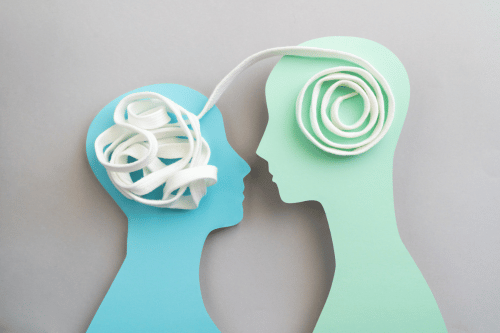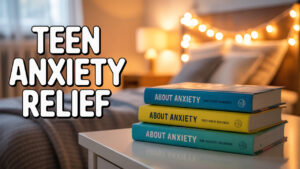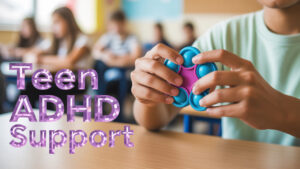Navigating Rehab Relationships: Finding Balance in Recovery and Love
Recovery from addiction is a time of profound transformation. While relationships can bring support and connection, a healthy relationship is crucial as it provides essential monitoring and encouragement, reducing stress and improving overall well-being, which are critical for long-term recovery success. Understanding the dynamics of rehab relationships is essential for personal growth and maintaining sobriety.
The Risks of Rehab Relationships
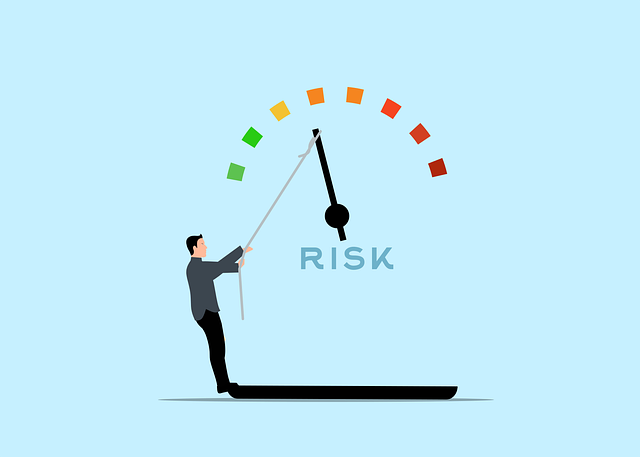
Heightened Emotions and Distraction from Challenging Emotions
Rehab is a period of intense emotional shifts, often amplifying feelings that can lead to romantic attraction. Sexual attraction can further amplify these feelings and complicate emotional dynamics, making it harder to distinguish genuine connections from those driven by chemical reactions in the brain. However, these emotions may be rooted in anxiety or discomfort rather than genuine connection. Misinterpreting these signals can result in unhealthy relationships that hinder the recovery process.
Romantic relationships in rehab often distract individuals from confronting difficult emotions tied to addiction. Rather than focusing on healing, energy gets diverted to managing these intense, and often fleeting, connections. This distraction can delay progress in overcoming underlying issues related to substance abuse.
Co-Dependency and the Fantasy of Romantic Relationships
A codependent person often seeks validation through relationships, a pattern that is common in addiction recovery. In a new romantic relationship, it is crucial to recognize potential red flags and maintain one’s individuality to avoid unhealthy dynamics. Co-dependency may arise from trauma or self-esteem issues, making rehab relationships particularly vulnerable to unhealthy dynamics.
The allure of rehab romance can create a fantasy world where individuals seek escape from the challenges of recovery. This unrealistic perception of romantic connections can prevent individuals from addressing the root causes of their addiction and delay their progress in building healthy habits.
The Dangers of Romance in Rehab
Romantic relationships in a rehab setting often create an imbalance in priorities. These connections can overshadow the critical focus on recovery and emotional health. Additionally, there are physical health risks, such as contracting sexually transmitted diseases, that are particularly concerning in this environment.
Engaging in a new romantic relationship during addiction treatment can also intensify emotional turmoil, increasing the likelihood of relapse. This further underscores the importance of prioritizing recovery over romantic pursuits.
Building a Strong Foundation in Early Recovery
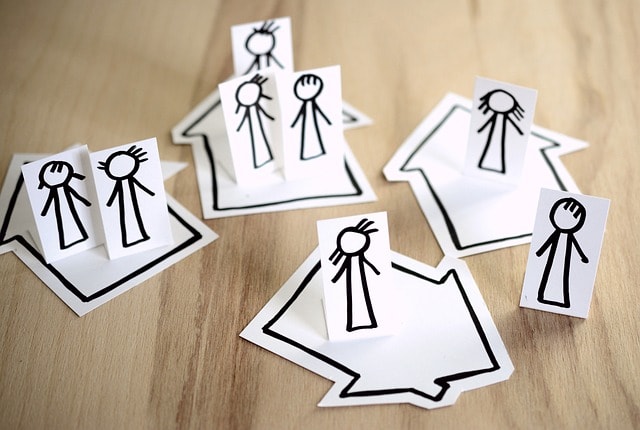
Why You Should Wait Until After Your First Year of Recovery
Experts recommend waiting at least a year before starting new relationships during recovery. This period allows individuals to focus fully on their well-being and develop a healthier mindset. By delaying romantic involvement, individuals reduce the risk of relapse and cultivate resilience for future challenges.
Early recovery is a time to rebuild physical and emotional health, establish healthy boundaries, and create a stable foundation for long-term sobriety. Romantic distractions during this crucial period can compromise these efforts.
Continuing to Work on Recovery and Personal Growth
Recovery does not end after the first year. Sustained effort is necessary to maintain sobriety and achieve emotional stability. By focusing on self-awareness and personal growth, individuals build the tools needed for healthy relationships.
Continuing personal development helps individuals form deeper connections with others, free from the shadows of addiction. This commitment to self-improvement strengthens emotional intelligence, fostering healthier relationships.
The Importance of Self-Reflection and Self-Awareness
Self-reflection is vital in identifying unhealthy patterns in relationships. Through self-awareness, individuals gain a better understanding of their triggers and emotions, empowering them to navigate relationships without compromising sobriety.
Developing emotional intelligence supports healthier interactions, allowing individuals to build relationships based on trust, respect, and mutual support.
Identifying Healthy Relationships
Signs of Relationship Addiction and Low Self-Esteem
Relationship addiction often mirrors substance addiction, with individuals craving validation and losing control over their romantic pursuits. Low self-esteem is a common underlying issue, making individuals more susceptible to an unhealthy relationship and its detrimental patterns.
Recognizing these signs is crucial for avoiding unhealthy dynamics and fostering connections that support well-being and recovery.
Red Flags to Look for in Romantic Relationships
Unhealthy relationships often exhibit red flags such as poor communication, disrespect for boundaries, and emotional manipulation. Identifying these warning signs helps individuals protect their emotional health and focus on building meaningful connections.
Healthy relationships are characterized by mutual respect, open communication, and shared values. These qualities are essential for maintaining sobriety and emotional well-being.
The Impact of Unhealthy Relationships on Recovery
Unhealthy relationships can derail the recovery process, increasing stress and emotional instability. They often contribute to feelings of shame, unhappiness, and conflict, which can trigger relapse.
Conversely, healthy relationships provide emotional support and stability, reinforcing positive habits and promoting long-term sobriety.
Cultivating Healthy Relationships in Recovery
Tips for Building Healthy Relationships
Building healthy relationships requires effort, self-awareness, and a focus on emotional health. Establishing clear boundaries, practicing self-care, and prioritizing open communication are foundational to creating supportive connections.
Healthy relationships also require mutual respect and trust, fostering a safe space for emotional growth and recovery.
The Power of Community and Support Groups
Support groups and community connections play a pivotal role in recovery. They provide a safe environment for individuals to share experiences, receive encouragement, and develop a sense of belonging.
Group therapy and peer support are invaluable in cultivating healthy relationships and reinforcing the recovery process.
Openness, Honesty, Compassion, and Kindness in Relationships
Practicing openness, honesty, and compassion strengthens relationships and builds trust. These values create a foundation for meaningful connections that support recovery and emotional health.
Navigating Romantic Relationships
Dating with a Healthier Mindset and Choosing Healthier Partners
When ready to start dating, individuals should focus on their own emotional health and choose partners who respect boundaries and prioritize mutual support. Healthy romantic relationships thrive on trust, communication, and emotional intelligence.
Setting Healthy Boundaries and Being Honest in Relationships
Clear boundaries are essential for protecting emotional health in relationships. Honest communication further builds trust and ensures both partners feel respected and valued.
The Importance of Patience and Communication
Patience and communication are critical for building healthy connections. Taking time to nurture relationships allows trust and mutual understanding to grow, fostering emotional stability and recovery.
Overcoming Challenges in Rehab Relationships
Building a Tolerance for Difficult Emotions and Developing Emotional Intelligence
Recovery involves confronting difficult emotions and building resilience. Developing emotional intelligence helps individuals manage these feelings constructively, supporting healthier relationships and long-term sobriety.
Surrounding Yourself with Positive Influences and Supportive People
A strong support network is vital for recovery. Surrounding oneself with positive influences, including friends, family, and support groups, reinforces emotional stability and provides encouragement for healthier connections.
The Importance of Self-Love and Self-Care
The Most Important Relationship You’ll Ever Have is the One with Yourself
Self-love and self-care are the cornerstones of recovery. Building a strong sense of self helps individuals maintain sobriety and develop healthier relationships with others.
Seeking Support and Guidance
Turning to Professionals for Support and Guidance
Therapists and counselors offer valuable tools for navigating relationships during recovery. Their expertise helps individuals address challenges and build a foundation for healthy connections.
Maintaining a Healthy Balance
Finding a Balance Between Recovery and Love
Striking a balance between recovery and love requires prioritizing emotional health and setting boundaries. Clear communication and self-care are essential for maintaining sobriety while nurturing relationships.
Cultivating a Healthy and Fulfilling Life
A fulfilling life is built on personal growth, emotional resilience, and supportive relationships. By prioritizing self-awareness and healthy connections, individuals can achieve long-term sobriety and happiness.

FAQ's
While it’s possible to form relationships in rehab, romantic relationships are generally discouraged. Rehab focuses on recovery and self-improvement, and romantic involvement can distract from these goals. Building supportive friendships is encouraged, as they can provide emotional support and understanding during this challenging time. Prioritizing sobriety and personal growth is key to long-term success.
Yes, two people in recovery can have a healthy relationship, but only if they have both established a solid foundation in their individual recoveries. This usually means waiting until after at least one year of sobriety. Healthy recovery relationships require mutual respect, clear communication, and boundaries. It’s also essential for both individuals to continue prioritizing their recovery to avoid relapse and codependency.
Romantic relationships in early recovery can divert attention from the healing process. Early recovery is a time to focus on rebuilding emotional health, developing coping mechanisms, and addressing underlying issues related to addiction. Romantic relationships can introduce emotional turbulence, increasing the risk of relapse. Experts recommend waiting at least one year before starting new romantic relationships to ensure a healthier mindset and greater stability.
Healthy relationships in recovery start with self-awareness and emotional intelligence. Focus on setting boundaries, communicating openly, and surrounding yourself with supportive individuals. Joining support groups or participating in group therapy can help you connect with others who share similar experiences. Prioritizing personal growth and self-care creates a strong foundation for meaningful and supportive relationships.

